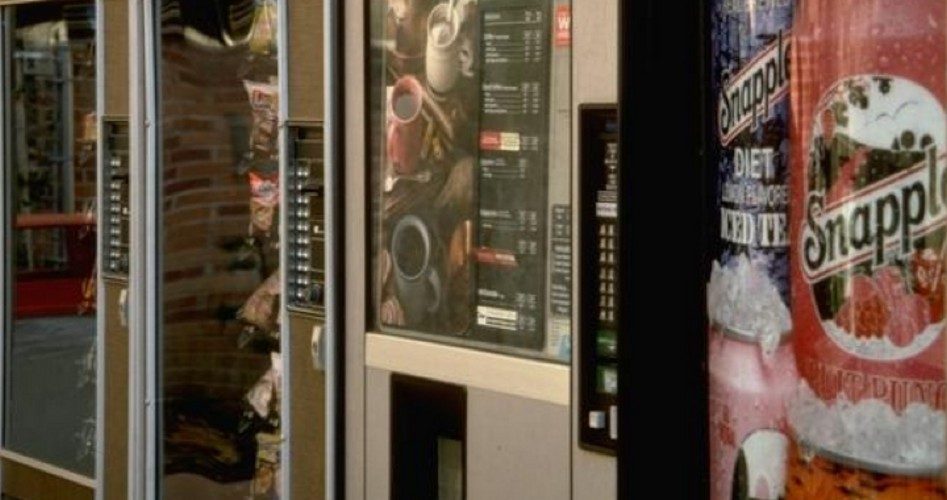
As ObamaCare continues to be implemented, a number of new and surprising cost increases are being revealed in areas where consumers least expect it. According to Fox News, a provision in the healthcare law requires supermarket owners to add special labels to food, a requirement that would “overburden thousands of grocers and convenience store owners.”
Fox News reported on the rule, “The rule stems from an Obamacare mandate that restaurants provide nutrition information on menus. Most in the restaurant industry were supportive of the idea, but when the FDA decided to extend the provision to also affect thousands of supermarkets and convenience stores, the backlash was swift.”
Section 4205 of the Patient Protection and Affordable Care Act (PPACA) states that companies with over 20 restaurants or vending machines must post nutrition content for standard menu items, and that vending machines must “provide a sign in close proximity to each article of food or the selection button that includes a clear and conspicuous statement disclosing the number of calories contained in the article.”
Store owners would be mandated to label prepared foods, unpackaged foods found in salad bars and food bars, as well as soups and bakery items.
Erik Lieberman, regulatory counsel at the Food Marketing Institute, asserts that in order for store owners to comply, they would have to test foods with either expensive software or expensive off-site laboratory assessments. Regardless of which method, it would result in increased food costs for consumers.
“This is a huge burden. Before we sell an item — like this apple pie — we have to send it to a laboratory for analysis, we have to compile eight different records on the item, we have to put that sign up there which says 300 calories,” Lieberman told Fox News’ Shannon Bream last month.
“We have to invest a lot of money to do this and this is money that we’re not investing in creating jobs or developing our stores and — savings that we can’t pass on to consumers.”
According to Lieberman, the cost of the regulation is estimated to be around $1 billion in the first year alone.
Store owners are begrudging the possibility of increased costs that will have to be passed on to consumers. “Well, I mean the supermarket industry is a business that’s well known, that our net profit line and average and has been forever … 1 percent,” grocery store owner Tom Heinen said. “So when you incur a significant cost, there is no way that that doesn’t get passed onto the customer in some form.”
Lieberman made similar assertions during his interview with Fox News’ Shannon Bream: “Because of this we could see a number of items going away and I can guarantee you that shoppers are going to see higher prices at the register,” he stated. He added that a failure to accurately assess nutritional data results in strict penalties. “If you don’t label, supermarkets face thousands of dollars worth of fines and executives of supermarkets could be put in federal jails,” said Lieberman. “You can go to jail if you don’t label the foods correctly under this federal regulation.”
The Food and Drug Administration defends this provision by claiming that the purpose of ObamaCare is to help Americans improve their health, and that the labeling requirements would do just that.
In the text of the proposed regulation, the FDA states: “[The information] should help consumers limit excess calorie intake and understand how the foods that they purchase at these establishments fit within their daily caloric and other nutritional needs.”
Critics of the regulation indicate that the benefits do not outweigh the costs and point to a 2011 executive order signed by President Obama that states that agencies must calculate a cost-benefit analysis for all new regulations and opt for the least burdensome regulations. “They are required to do it, and they didn’t,” Lieberman said. “They simply said, ‘We can’t quantify a benefit from this rule,’ and that’s because they really can’t.”
The FDA reports that it has already received hundreds of public comments on the proposal and will take them into consideration when finalizing the regulation.
The FDA mandate already confounded vending machine operators and restaurant owners in 2010 when it was first learned that they would have to disclose calories contents of the foods they sell, especially since the FDA did little at the time to provide guidance to businesses. CNS News reported at the time, “The FDA … has not been able to give vending machine operators complete and final guidance on how they should make their machines comply with the law, thus causing ‘confusion’ and ‘frustration’ in the industry.”
“There’s definitely confusion and a little bit of frustration from our folks who want to comply with the regulations,” said Neal Monroe, vice president of government affairs at the National Automatic Merchandising Association.
Vending machine operators voiced similar concerns to those now being heard from storeowners regarding the staggering costs that the food labeling mandate would add to already struggling businesses. “To give you an idea of the economic impact, a vending operator who has just 20 machines is making less than $4,000 a year in profit,” said Monroe. “And these regulations cost between $3 and $100 per machine.”
“This could be an enormous economic hit for them,” he told CNSNews.com.
“What we are concerned about is the impact of the regulation on our small business people in this economic situation,” said Monroe. “The climate is pretty tough. As unemployment increases, there are fewer workers in the factories, there are fewer people buying snacks, so this is a — a pretty tough economic hit.”
Critics are viewing the food-labeling mandate found within ObamaCare to be yet another flagrant example of the growing nanny state. Human Events opined on the provision:
Getting it “right” will make America look even more like a nation of hapless children, wandering aimlessly through a world wallpapered in warning labels and federally mandated advisory notices, most of which they never bother to read. Creeping socialism is awesome, isn’t it?
The agency contends that the regulation will be released in the spring along with a final “economic analysis.”




